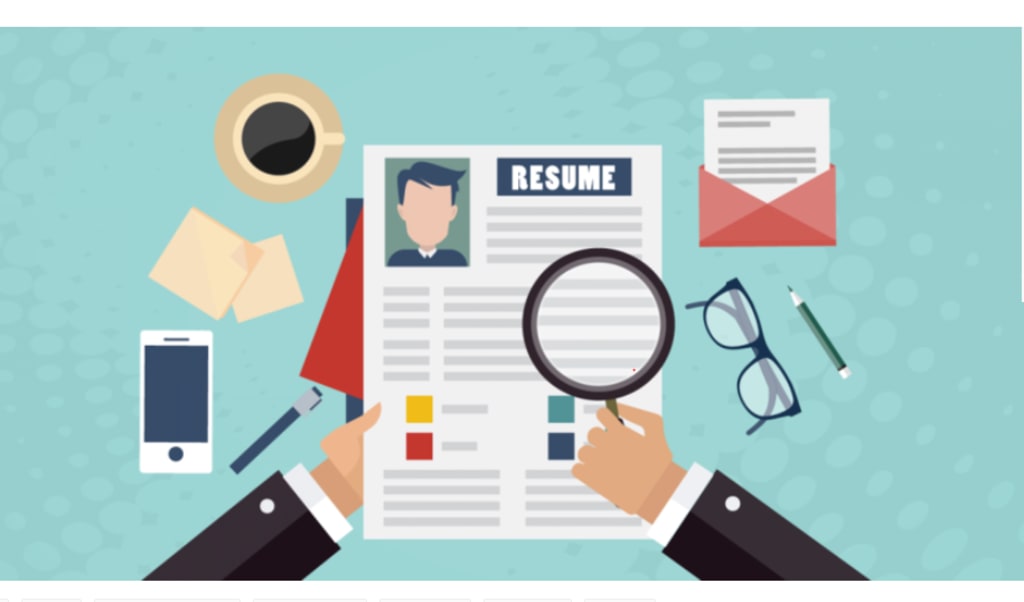
Your resume is your first professional handshake and pretty much the employer's first impression of you. So obviously your resume has to be top notch and must stand out among the rest! Let's start off with some resume Do's and Don'ts!
DO's

- Tailor your resume to every job you apply to! Yes, every job! You can't apply to a waitress job the same way you would apply to receptionist position. Cater you resume to the position and highlight education, experience, or skills that would cater to that job.
- Update your information! People tend to forget to update things like job dates, especially if they have just left their most recent position. It's also easy to overlook your contact information, so make sure you update that too!
- Be honest! Only provide information you can back up. Don't run the risk of your resume being thrown out!
- Proofread and revise! This one is just embarrassing, but often done! Take the time to proofread your resume, read your statements out loud, and make sure every thing makes sense.
- Try to limit your resume to 1 page (no more than 2 if you must go over). There's debate about this one and many people believe that a longer resume is more impressive than a shorter one. This is NOT true! No employer wants to flip through a 5 page resume for every single applicant. This is why it is important to tailor your resume to every job, so that you are only including relevant information.
- Your statements should be formatted in terms of "action, purpose, and result." Don't just create a list of things you did for each of your positions. Make sure to include why you did those things and what you accomplished by doing so. ACTION: Start each bullet point with an action verb, such as: created, developed, managed, etc. PURPOSE: What was the purpose of the task or responsibility? RESULT: What was the result of your action? What did you accomplish from it?
DON'TS

- Don't use "I" statements. Your resume is obviously about you, so there's no need to include "I" or "my." As mentioned above, your statements should start with an action verb anyway so there's no need to include them anyway!
- Do not provide salary information. This is considered unprofessional and otherwise tacky. The only time salary should be discussed if the job application asks for it or if the employer brings it up first.
- Do not include your references. Again, this is unnecessary. If the employer needs it, they'll ask for it and most job applications ask for that anyway so they already have that information. What you can do, is have a document with those references handy for you interview just in case they request them, but no need to waste space for that on your actual resume.
- Do not include a head shot of yourself. This is a big no-no. There may some exceptions for creative positions, but for the most part this is too, considered unprofessional and tacky.
- Do not disclose personal information such as age, gender, religion, etc. There are laws in place to protect applicants from being asked this kind of information so don't undermine these protections by providing this information. The job application itself may ask for some demographic information, but you can always opt out.
- Do not provide false information. Again, don't provide information you can't back up. Best case scenario: You get hired! Worse case scenario: You get hired and then fired shortly after for not being able to perform what you said you could.
- Do not leave out dates. This is important. Employers want to know about any gaps in experience. This will also reflect how much you can handle in that if you were working 2 jobs and going to school at the same time, the dates will show that and your potential employer may be impressed by it!
What do employers have to say about it?

The results were gathered from employers recruiting applicants at a career expo.
- Out of 442 employers, over 60% of them preferred one-page resumes. About 4% preferred longer resumes and 30% had no preference.
- The most common mistakes made by applicant on their resume are: spelling and grammar errors (most common), lack of focus, making it too long, leaving out dates, no key words.
- The top skills looked for in an applicant are: communication, leadership, and adaptibility.
- Out of 428 employers, 65% recommended that you include an objective on your resume. 30% said no objective and about 4% had no preference.
- Employers shared that most common platforms used to recruit applicants are: online job postings, career centers at universities, referrals, internships, and Linkedin.
Hopefully you find this information useful and it helps you strengthen your resume! If you happen to get an interview (and I know you will!), check out my post on Interviewing 101 (vocal.media/journal/interviewing-101) to help you land the job you want!
About the Creator
G M
Just a young woman trying to put her thoughts out into the universe💫 Your support is greatly appreciated!❤️






Comments (1)
Thank you for the important recommendations. I'm just putting together my resume and I want to include as much information as possible. I also found tips from https://us.resumeedge.com/blog/where-to-put-gpa-on-resume on how to put a GPA on your resume. Which might be important to an employer.